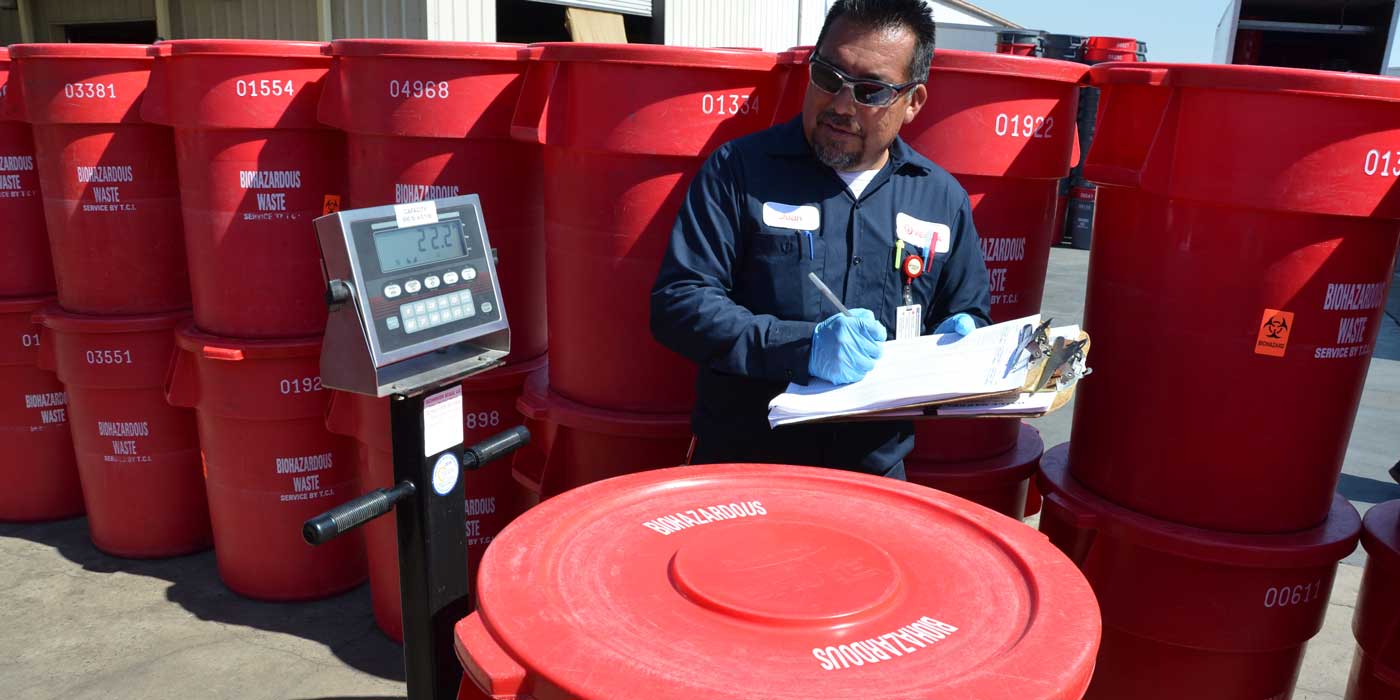Professional Solutions for Health: Unveiling the Medical Waste Removal Service Advantage
Professional Solutions for Health: Unveiling the Medical Waste Removal Service Advantage
Blog Article
Understanding the Different Sorts Of Garbage Disposal Methods
In the realm of waste administration, the selection of disposal strategies available today is large and varied, each technique offering a distinct purpose in dealing with the difficulty of waste disposal. click here. From recycling techniques that intend to give new life to materials, to the complex procedures of hazardous waste administration, the landscape of garbage disposal is complex yet crucial for environmental sustainability. Comprehending the nuances of these various strategies not just clarifies the importance of responsible waste management however likewise triggers us to rethink our strategy in the direction of garbage disposal in a rapidly evolving world

Recycling Methods
Reusing techniques are essential for lasting waste administration techniques in both commercial and domestic setups. medical waste removal near me. By executing reliable recycling methods, a considerable quantity of waste can be diverted from land fills, conserving natural deposits and lowering the environmental impact of production procedures
In suburbs, curbside recycling programs play an essential function in motivating houses to different recyclable materials from general waste. Products such as paper, plastics, glass, and metals can be sorted and gathered for handling into new items, lowering the requirement for resources and energy-intensive manufacturing processes.
Industrial centers also depend on reusing techniques to decrease waste generation and promote a circular economic situation. By implementing closed-loop systems, services can recycle materials within their production procedures, lowering costs and environmental impact. medical waste removal. Furthermore, commercial recycling programs commonly entail partnerships with specialized recycling facilities to make sure that products are effectively arranged, processed, and reintegrated right into the supply chain
Composting Strategies

Oxygenated static heap composting includes blending natural waste materials in a big heap and regularly turning it to make sure appropriate oygenation. This method is fit for smaller-scale operations and families.
In-vessel composting entails positioning natural waste in a shut container with regulated conditions for temperature level and aeration. Windrow composting includes developing long rows of organic waste and consistently turning them to promote decomposition - medical waste removal near me.
Landfill Disposal
Garbage dump disposal is a typically utilized approach for taking care of waste that can not be reused or composted. Methane gas, a by-product of disintegrating organic waste in landfills, is often accumulated and made use of as a resource of eco-friendly energy. Efforts to reduce dependence on land fills include advertising waste decrease, recycling, and exploring different waste disposal techniques to reduce the environmental impact connected with typical land fill disposal methods.

Waste-to-Energy Incineration
Incineration of waste for power generation is a method significantly being taken into consideration as a choice to standard landfill disposal techniques. Waste-to-energy incineration entails the burning of waste materials at heats, generally in specialized centers created to produce electrical power or heat with the process - click here. This technique not just lowers the quantity of waste that would otherwise be predestined for landfills but likewise harnesses the heat generated during incineration to develop power
Among the crucial advantages of waste-to-energy incineration is its capability to create electrical power while lessening the ecological effect compared to traditional garbage dump disposal approaches. By transforming waste right into power, this method assists in lowering greenhouse gas emissions and dependence on fossil fuels for energy generation. In addition, waste-to-energy facilities are furnished with innovative air contamination control technologies to mitigate potential toxic wastes released during the check it out combustion process.
Hazardous Waste Administration

Taking into consideration the critical importance of liable waste monitoring methods, especially in the realm of environmental sustainability, the emphasis now shifts towards the detailed domain name of Hazardous Waste Management. Contaminated materials poses significant risks to both human wellness and the atmosphere, necessitating customized handling and disposal strategies. Typical instances of hazardous waste consist of chemicals, batteries, pesticides, and electronic waste.
Contaminated materials Administration involves the recognition, collection, transportation, therapy, and disposal of materials regarded unsafe or possibly dangerous. This procedure requires adherence to stringent regulations and standards to reduce damaging effects on ecosystems and public wellness. Various techniques are employed in handling contaminated materials, including recycling, safe and secure garbage dumps, encapsulation, and chemical therapy.
Proper Contaminated Materials Management is vital for avoiding contamination of dirt, water resources, and air pollution. It is necessary for industries, laboratories, medical care centers, and other generators of unsafe waste to apply durable management approaches, training programs, and emergency situation response intends to ensure the risk-free handling and disposal of these products. Failing to manage contaminated materials appropriately can have far-reaching repercussions, emphasizing the importance of responsible and attentive methods in this field.
Final Thought
In conclusion, waste disposal strategies play a crucial duty in handling and lessening the effect of waste on the atmosphere. It is essential for individuals and sectors to understand the various waste disposal strategies offered and choose the most appropriate approach for lasting waste management.
In the realm of waste administration, the range of disposal techniques readily available today is huge and varied, each approach offering a distinct objective in addressing the challenge of waste disposal. click here. From recycling methods that intend to provide new life to materials, to the detailed procedures of unsafe waste monitoring, the landscape of waste disposal is complicated yet essential for environmental sustainability. Recognizing the nuances of these different strategies not only loses light on the value of accountable waste management yet likewise motivates us to reconsider our method in the direction of waste disposal in a quickly evolving globe
Efforts to minimize reliance on land fills include advertising waste reduction, reusing, and checking out different waste disposal techniques to minimize the ecological impact connected with typical garbage dump disposal techniques.
It is essential for sectors and individuals to recognize the different waste disposal methods available and select the most ideal technique for lasting waste management.
Report this page